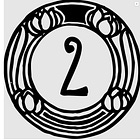INDEX Page, Yevtushenko book on Ethnogenesis, in 11 chapters
Toward understanding the "Passionary Theory of Ethnogenesis", the works of Lev Nikolaevich Gumilyov and its Applications.
This is a book by Evgney Albertovich Yevtushenko 2017 from Krasnoyarsk, RU, updated in July 2020. This is what I wish to start with as my first publication. In this format is is 127,000 words in English. (Just start it, and see if it catches you.) Yevtushenko spent years reading all of Gumilyov's many works, and distilled them into this book. It is much more direct than starting to read Gumilyov’s many, and long books, which might take years. (Plus, not many are in English.)
I posted all these eleven chapters rather quickly, (look at the dates). That is not because I have any timelines, nor publication goals. It is because THIS BOOK IS SO DAMN INTERESTING, that I couldn’t put it down. That’s after 3 years since I studied it intensively. It was my introduction to many more translations which I later chose to do.
____________
[NOTE: Ethnogenesis is a organizing system that (is one way to) explain(s) the rise and fall of civilizations, not only in Russia. It has different rising and falling stages, which you will learn to understand. During these explanations examples are given of many societies, and when they were going through that particular phase in their growth/dissolution. Most of the examples come from Russia, and also the Soviet Union. THEREFORE, if you think everything written about Russia is propaganda, you will reject this book. In chapter one, Gumilyov’s biography will demonstrate he never wrote propaganda. Many of the examples come BEFORE the Soviet Union. And if it is propaganda, then take it with a grain of salt. However you will not fail to notice that the Ethnogenisis theory also explains most of the contradictions in the western world.]
So this book has two “take-aways”. One is the understanding of ethnogenisis, which already explains a lot. (in Part one). Don’t take it as a truth, but see what makes sense about it. Furthermore, with the age of the internet, the information age, and the acceleration of technology, much of this theory must also be accelerated or distorted. This is what you can watch for.
Second, there is a good overview of Russian and Soviet history, (in Part two), related to the Gumilyov theory, and both in his words and in comments by the author, Yevtushenko. He doesn’t say everything in Russia is good, far from it. He doesn’t justify it, but correlates it to the phases of ethnogenesis.
(I translated this book from the Russian 3 years ago, and it is the only English edition in existence, only here on this Substack, and in my computer files.)
_____________
What is good about Gumilyov? Because he teaches strategic thinking. That is, he teaches to see far, and to dig deep. From a tactical point of view in our country really "everything is bad". But strategically, we have already won. Yes, we have already won. Because our people didn't want to die, (in the Soviet breakup). By all accounts they were already buried, but they didn't want to! Of course, before the final victory, time must pass - years, five, ten, twenty. How much time is unknown to us, but from the point of view of history – it’s not much time at all. (But we want it fast!)
Lev Nikolaevich showed us that Ethnogenesis, i.e. the movement of history, cannot be undone by politicians' directives, and it cannot be pushed. It goes according to its own natural laws. We must understand these laws. Then there will be order in our mind. Today, we talk a great deal about the "deep state," but we say almost nothing about the "deep people”.
Now for the main point. This book is about the "deep people", which at this point in history proved to be stronger than the "deep state". Today we are at the beginning of a new, great period of Russian History. (And of the world - too.) Not in the middle, not at the end, not on the side, but at the beginning! Well, and the "liberals" – they are at the end. It moves through these stages:
"Introduction" - theory, methodology and criticism of Gumilyov (II h)
Ethnic History of Russia - in the first part of the book (the phases). The key chapter on the history of Russia.
The National Question - in the first chapters (theory and practice), and in the second part (practice).
Global problems of modernity (globalization, world crisis, etc.) and probable forecasts for the future of Russia and the world - in the second part.
The topic of the decline of Western civilization is in the chapter "Phase of Obscuration".
Questions of ideology (nationalism, Eurasianism, capitalism, socialism, etc.) are predominantly in Part II.
The Russian question runs through the entire book. There is an analysis of Ukraine.
The concept of anti-systems is in the second part of the chapter "Fracture Phase" (Commentary 1).
For questions about understanding history, see the chapter "On the Measure of People's Influence on History".
________________
The book focuses on identifying patterns of the historical process. This is very important, because it is not enough to know history - it must be deeply understood.
Lev Gumilev's theory of ethnogenesis occupies a special place among historiosophic concepts, (explaining history). Its appearance in the early 70’s of XX century, it has made a real revolution in historical science. And not just historical. In His concept Gumilyov denied all traditional ideas about the methodology of history, putting at the head, not the usual and unbreakable economy-society-politics, but a natural (biosocial) phenomenon he redefines - ethnicity.
Instead of the linear and unidirectional principle of historical development, within which Marxist and liberal historiography developed; Gumilyov proposed the principle of discontinuity of ethnic history, according to which peoples (cultures) are born, reach a passionate maximum, and then - grow old and die, making room for new peoples, sometimes related to the departed, sometimes not.
Gumilyov's theory gave rise to a new science - ethnology, which covers not only history, but also geography, biology, psychology, philosophy and other sciences. This meets the needs of the time, since the strict division of sciences into natural sciences and humanities is already very obsolete.
Lev Nikolayevich Gumilyov said: "I have long known what passionarity is, and that it is possible to apply working passionarist approaches in historical categories. And knowing that historical problems are solved with the help of my concept, just as easily as a person who knows algebra solves arithmetic problems.
We can say that unlike most historians, who, since the time of Herodotus, have walked mostly on the surface of history, Lev Gumilev went deep, and far into its depths. When everyone was engaged in historical arithmetic, he engaged in historical algebra. And he did it very successfully, thus embarrassing many of his colleagues. This is one reason for the critical attitude to Gumilyov from a significant number of historians – the narrow specialists.
Another reason for the rejection of Gumilyov, both in Soviet and post-Soviet times, is ideological. The fact is that the passionary theory of ethnogenesis categorically does not fit into either Marxist or liberal world-view frameworks. It is anti-Marxist and anti-liberal in its ideology, that is it’s also - anti-globalist. That is why Gumilyov's concept has not yet received a serious scientific continuation in the academic environment, traditionally conformist. This amazing theory is still waiting for a comprehensive understanding and further development.
The world has changed a lot in the last decades. We are witnessing an unprecedented historical turning point; we are entering a qualitatively new and very turbulent era. Therefore, today we need new methods in the study of both history and modernity. The theory of ethnogenesis, which is built not on the shaky basis of socio-economic consequences, but on the solid foundation of natural causes, meets the challenges of time. It allows: 1) to assess in a new way the course of Russian and world history (especially in the XX century); 2) to clarify the "state of health" of Russian super-ethnos (Russian civilization) at the present stage; 3) to determine the place of Russian super-ethnos among other modern world super-ethnos; 4) to make a probable forecast for the future of Russia and the world.
And this is its main difference from Western theories, with their Eurocentrism, "Economism" and their dubious projects of the future.
In addition, Gumilyov's concept is valuable for its universality. This means that it convincingly explains not only history and inter-ethnic relations, but also many aspects of politics, economics, culture, psychology, even morality (and their dynamics), that is, practically - all aspects of our life. It explains from the level of the individual to the level of entire civilizations. Yes, yes! No more, no less.
And you can be sure of this by reading this book.
_____________
Following here I will add links for the chapters of this work. I am not sure what kind of page counts I will post in one bite. I’ll start more moderate and see where it leads.
Eleven chapters finishes this book. If I write an essay about further explorations, I will include it in this Index. I don’t want any remnants of the book to float loose.
___________
I intend to publish other books, so the “Archive” listing will be full of all the other book chapters. Therefore there will be an index page of every grouping, with links, pinned to the top.
Also I will write a letter to Yevtushenko, (the author), and see what his further reflections are, and what he has written in the interim.
.












